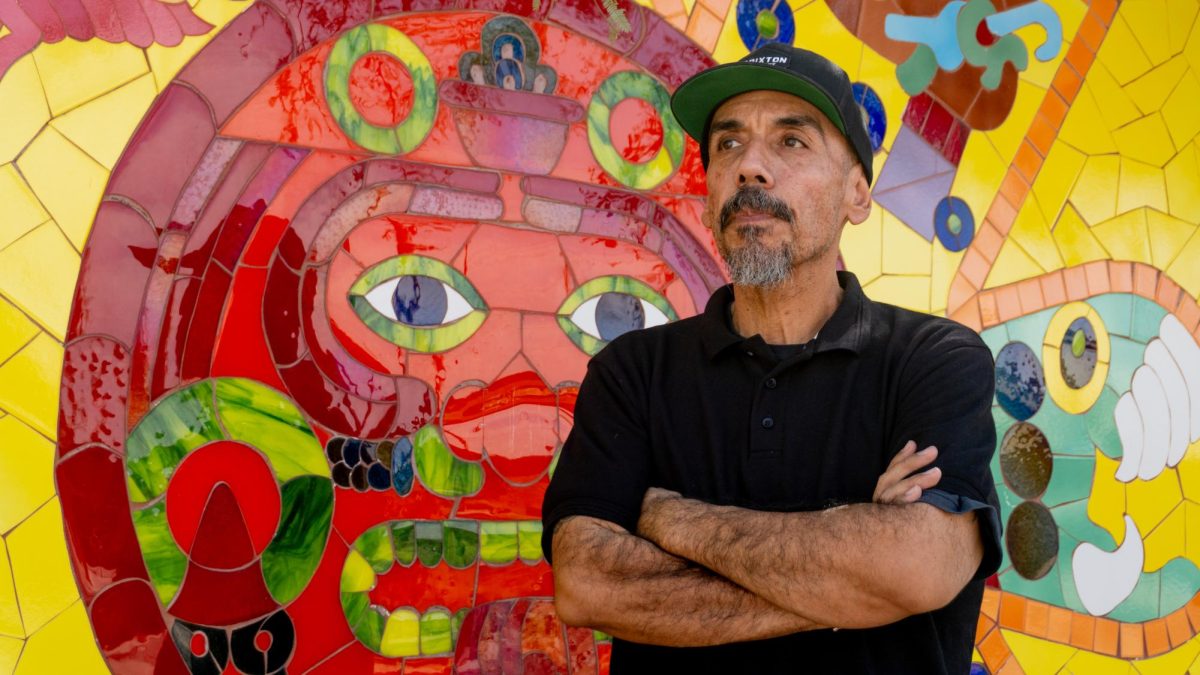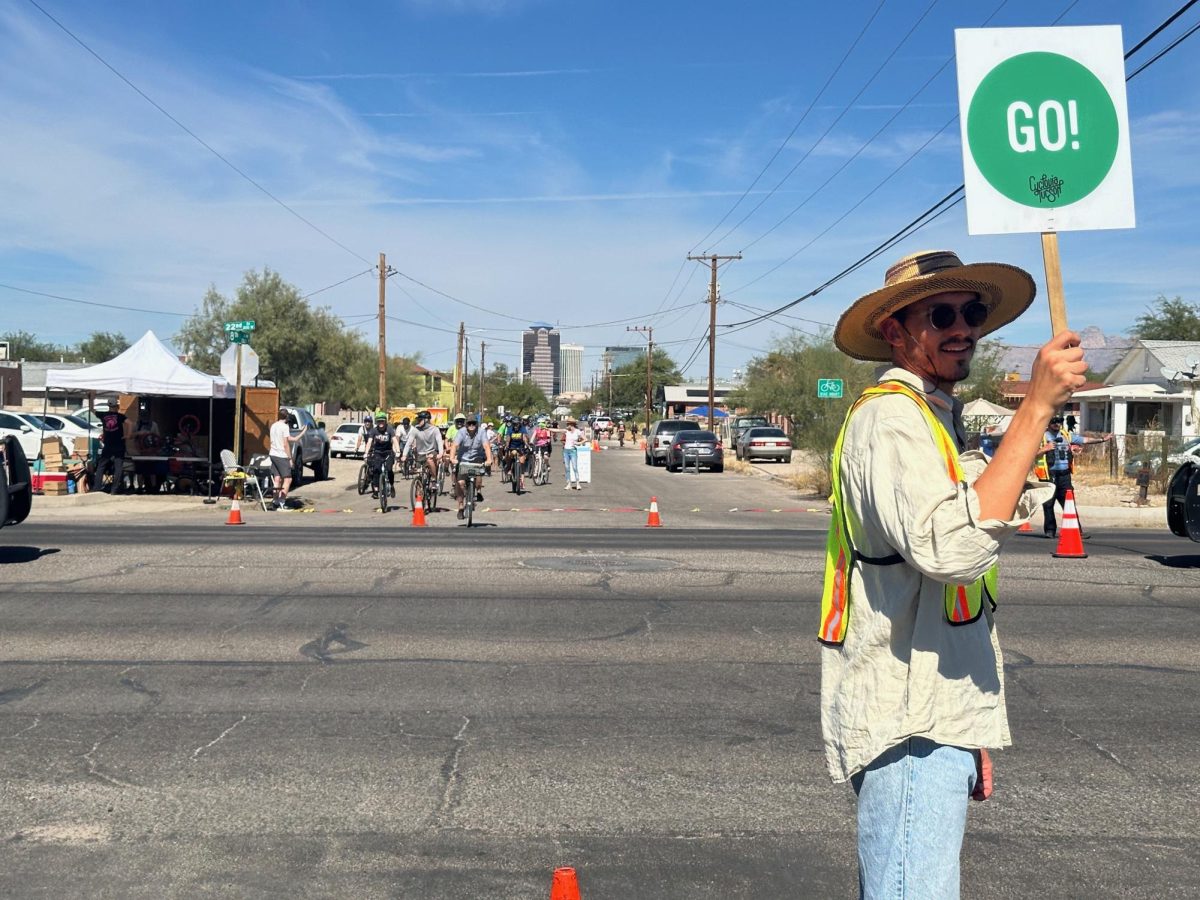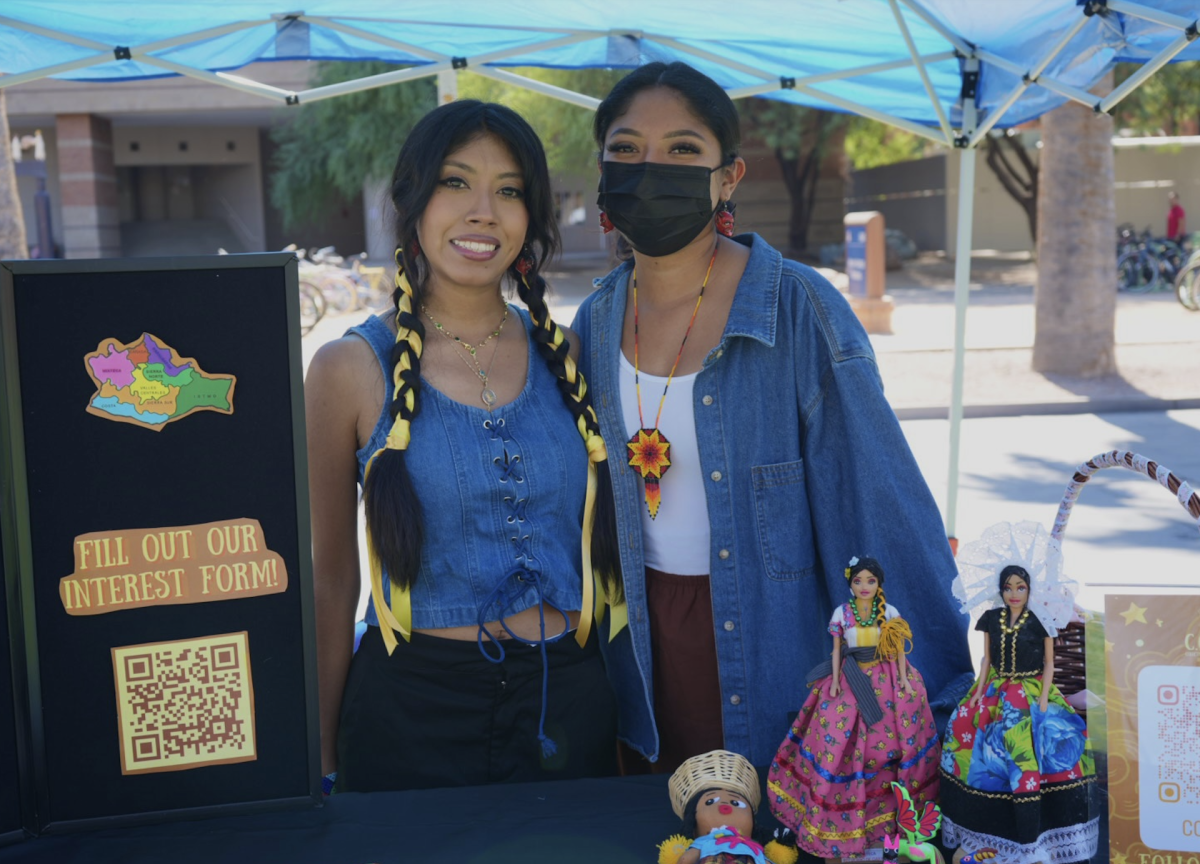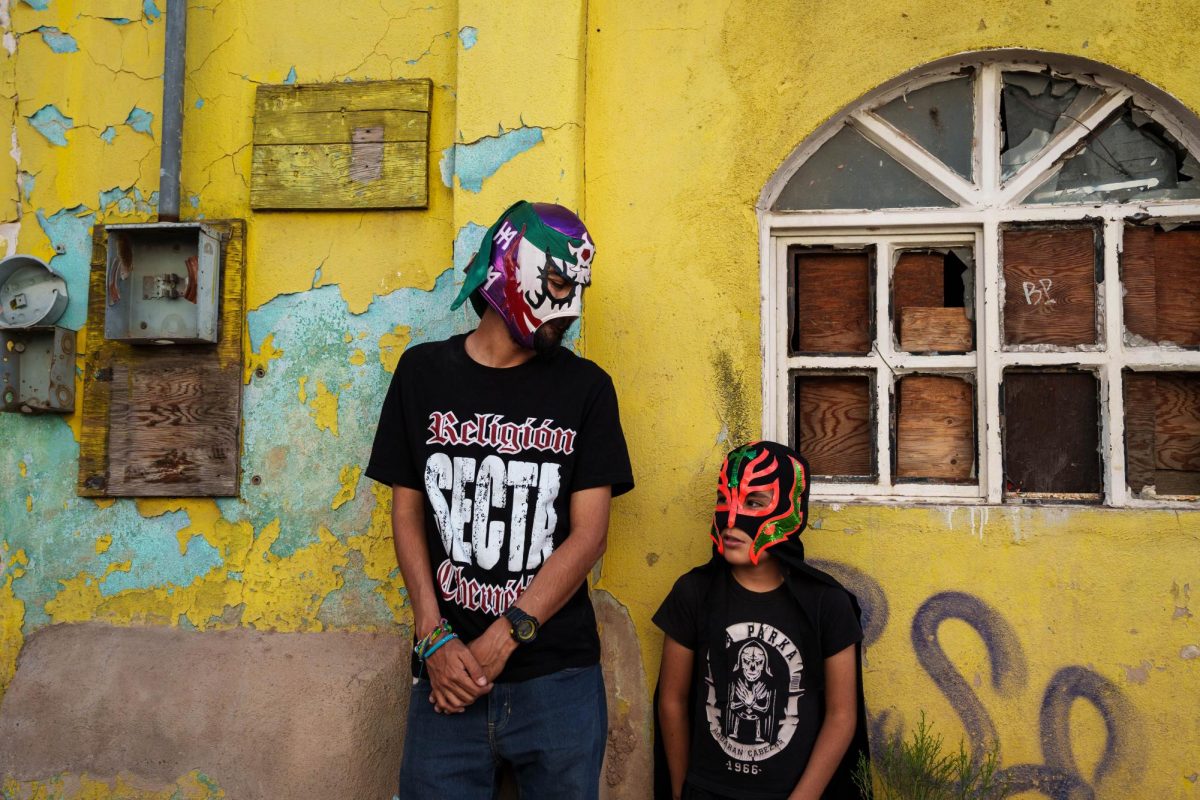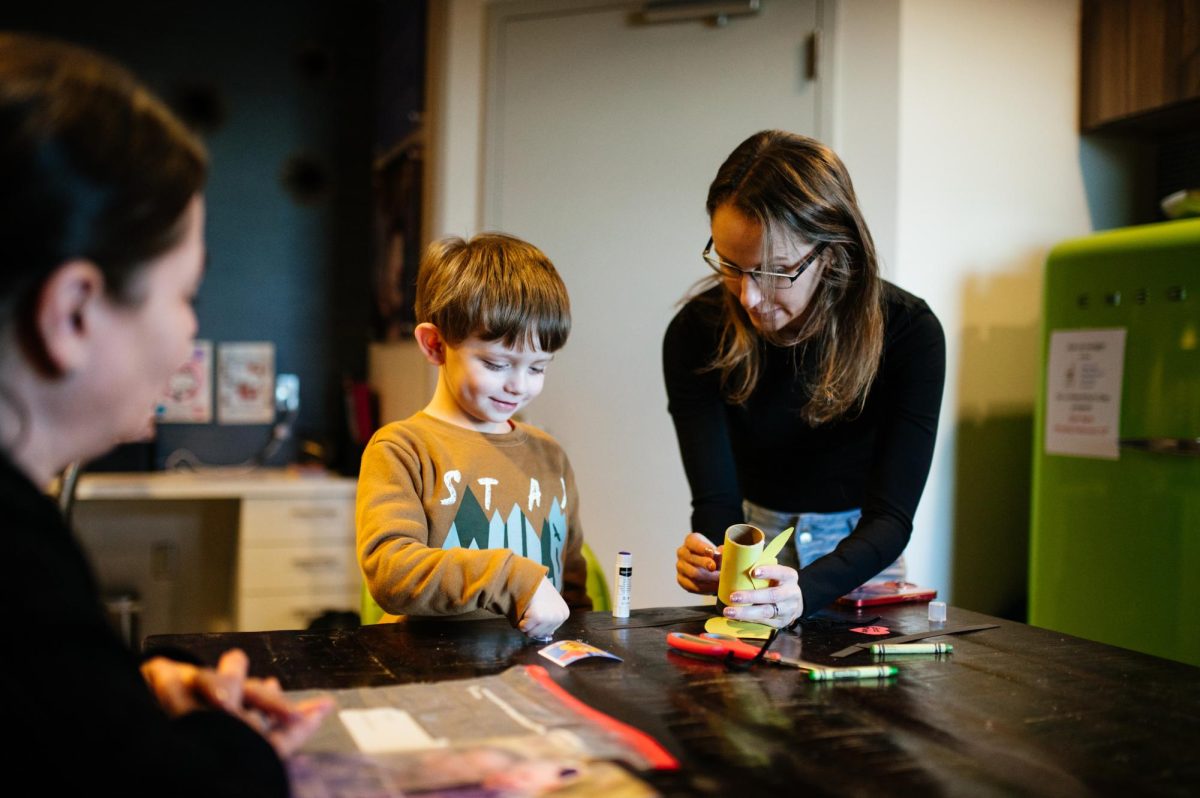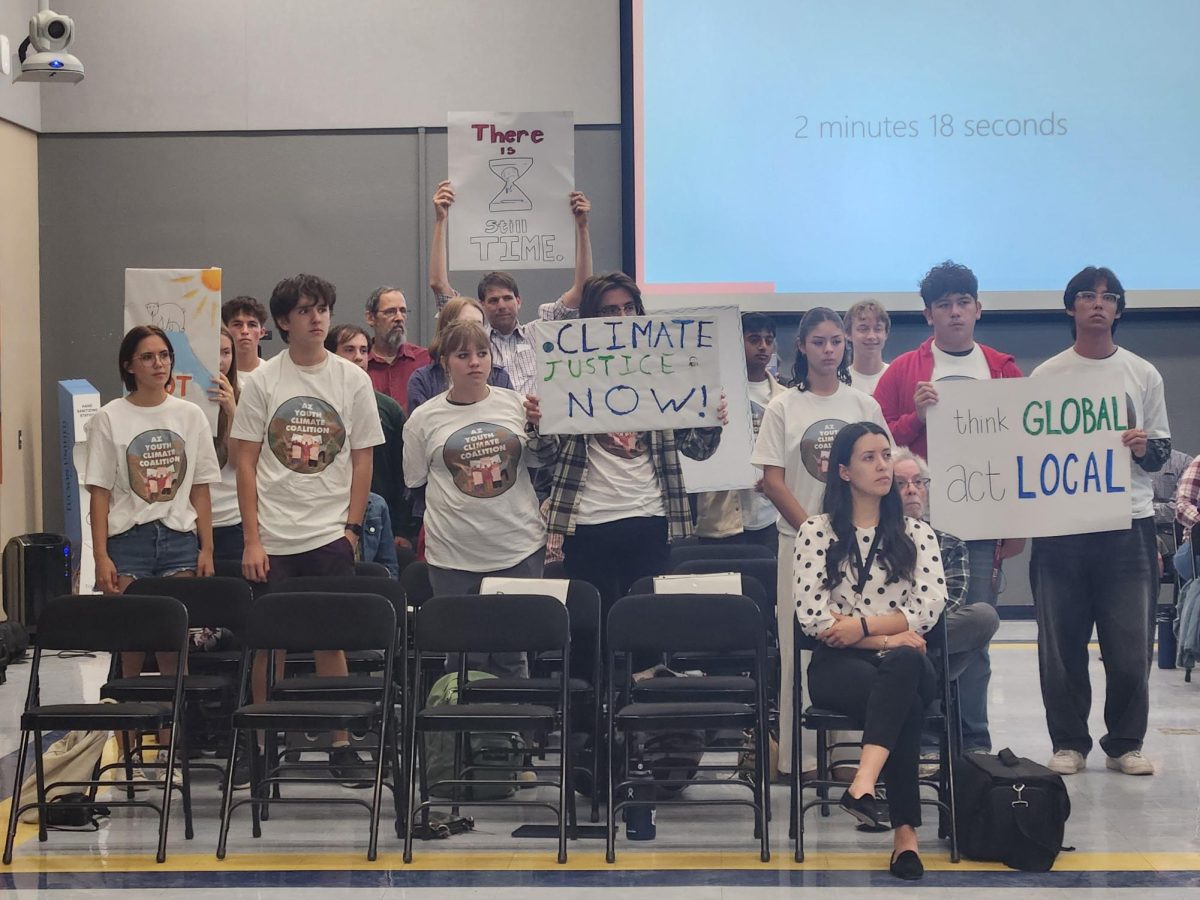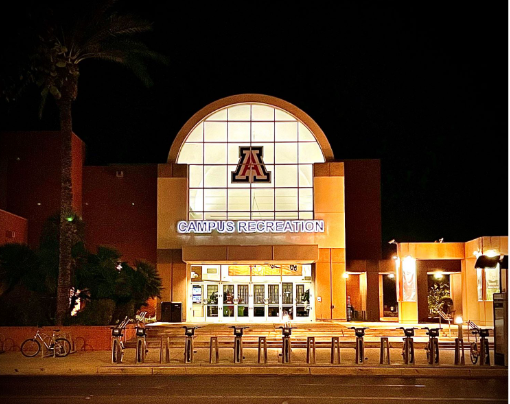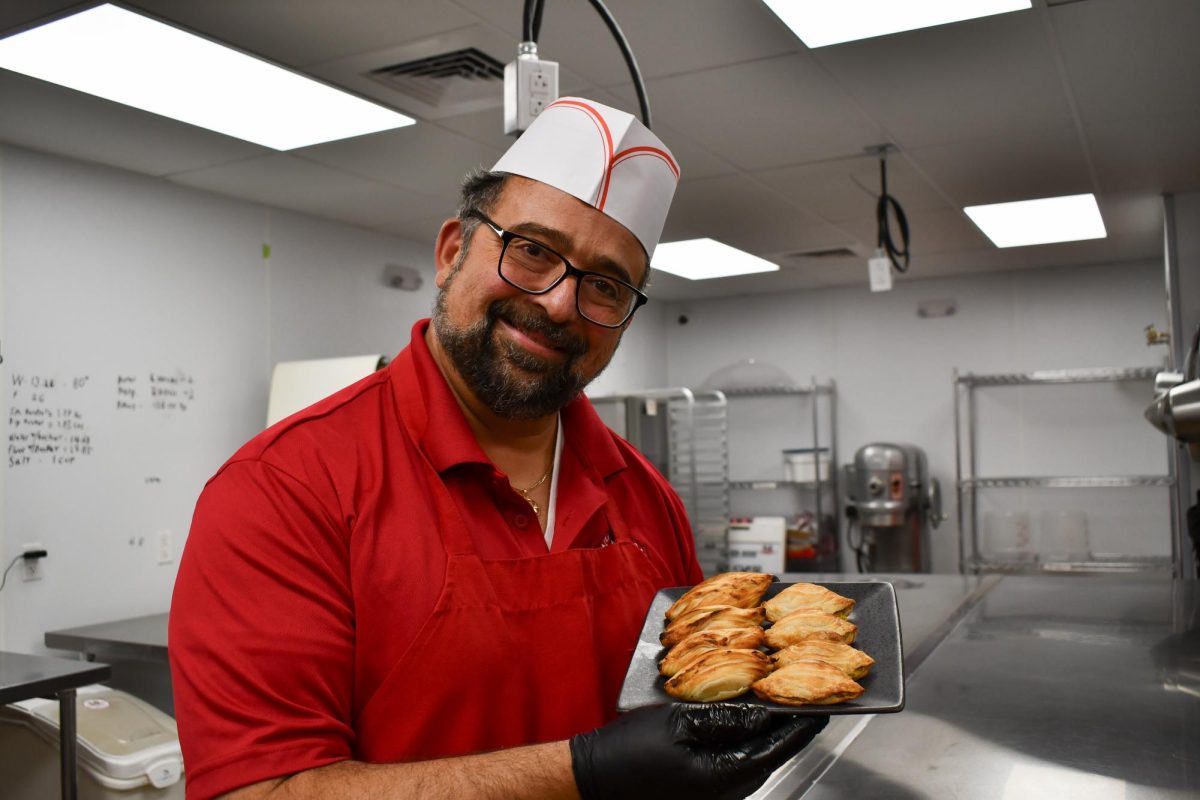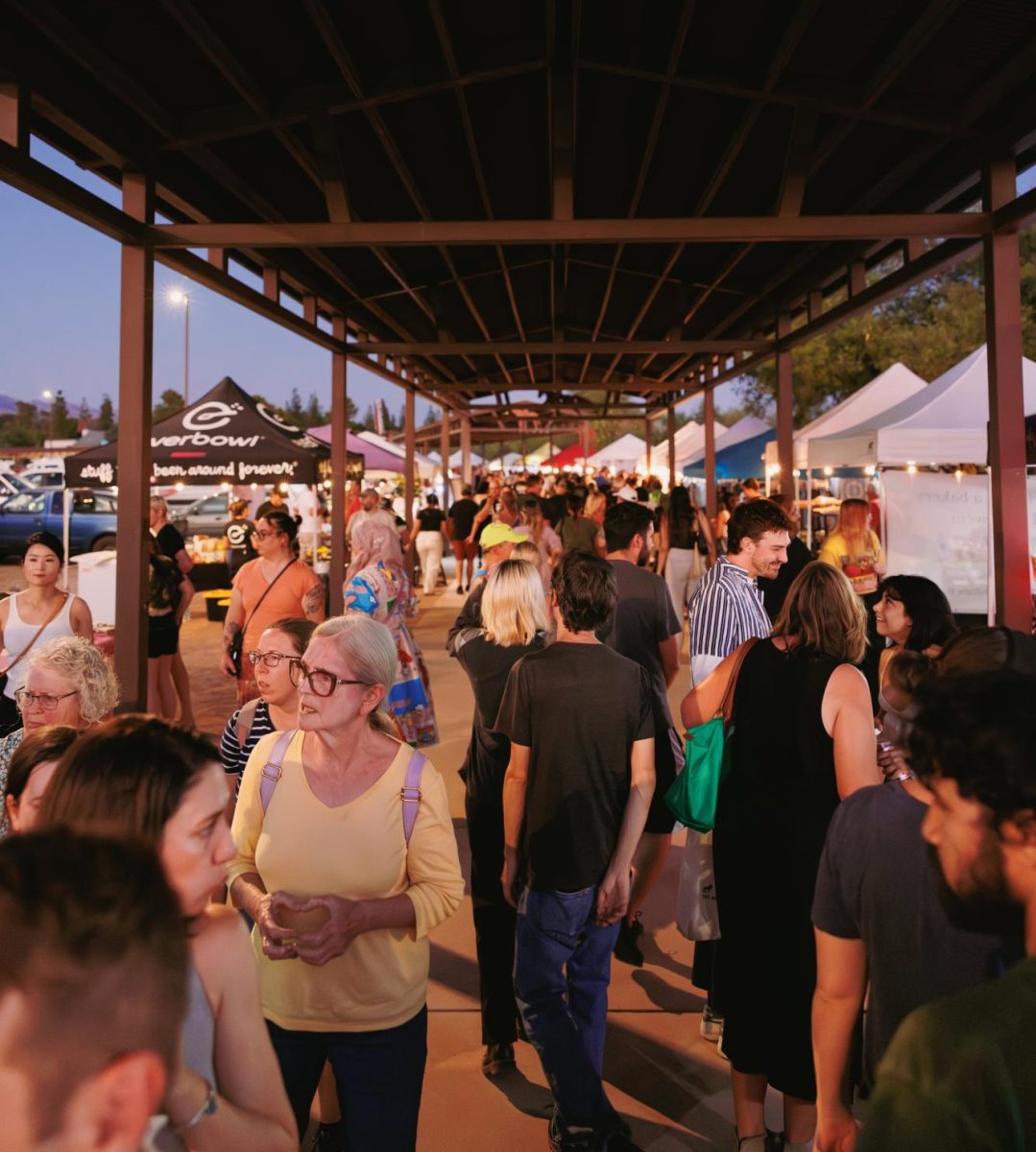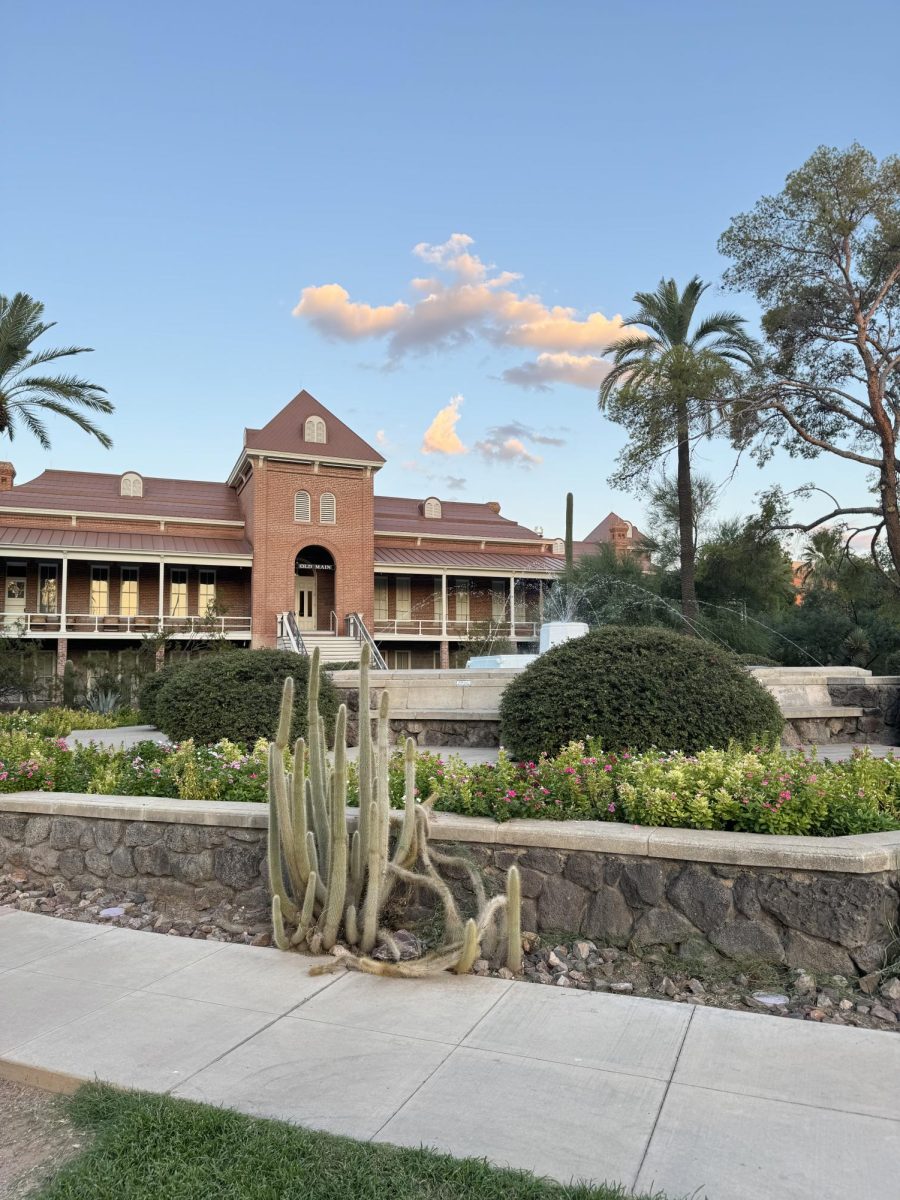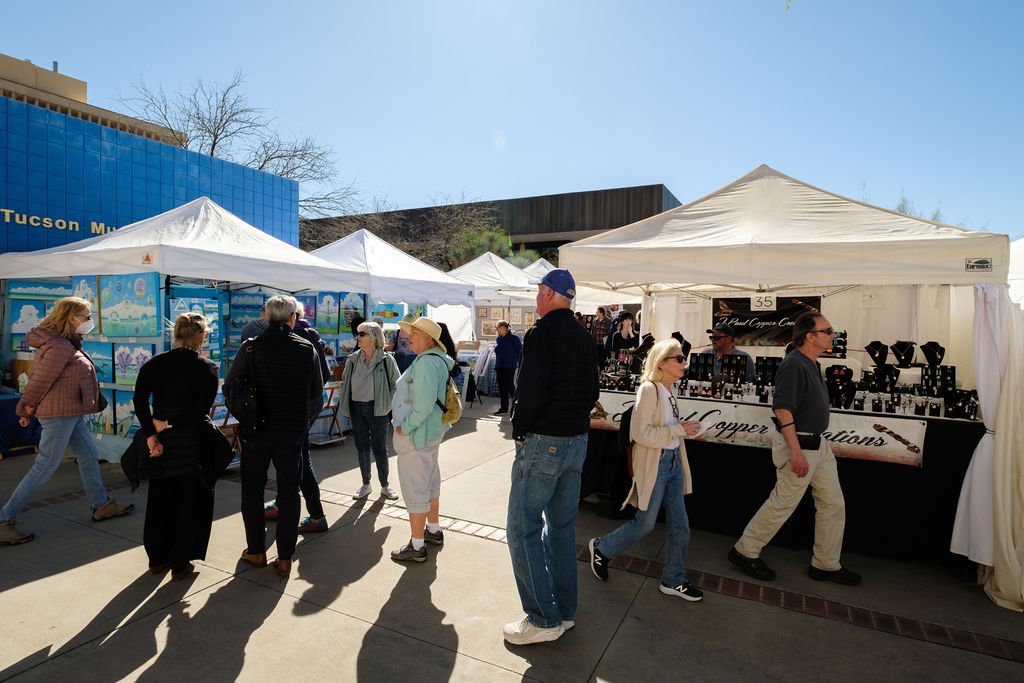In the heart of South Tucson, on a warm Sunday morning, a group of people lines up at a neighborhood park.
At the front of the crowd, organizing food bags and greeting everyone with a warm smile, is Nagyelin Hurtado, a Venezuelan migrant and mother of three, who spent the morning preparing 100 fresh burritos for the homeless.

As the volunteers package the burritos and drinks, the room is filled with a sense of purpose and loud music.
Every month, she coordinates a food distribution with a team of U of A students and Venezuelan and Mexican volunteers. It is a community-driven effort that reflects Hurtado’s deep faith and unshakable resilience.
“We do a warm meal and two fresh drinks in all underserved communities around us,” she says.
Nagyelin arrived in Arizona in 2022, crossing through the perilous Darién Gap, a dense jungle spanning Colombia and Panama.
She fled Venezuela with her family when food shortages were so extreme that her children faced malnutrition and starvation daily. They reached the US soil pushing through dangerous terrain, kidnapping, extorsion, days of heavy rains and scarce food. That experience left her with lasting memories of hardship and survival.
Now, her monthly act of service in Tucson serves not only to combat hunger but also to rewrite the narrative around migrants, many of whom are driven by necessity and hope for stability.
Nagyelin channels her energies into uplifting her community in Tucson while challenging the stereotypes that have grown around Venezuelan migrants in the U.S.
“I don’t want people to see us as victims, or worse, as threats,” Nagyelin says. “We are people who care deeply about our community, who want to contribute and who have lived through things we would not wish on anyone else”
Her words resonate after the Nov. 5 presidential election that will restore Donald Trump to the White House. Throughout the campaign, Trump put Venezuelan migrants like Nagyelin at the center of the immigration maelstrom.

Nagyelyn Hurtado and her nephew, who she brought through the Darién jungle, stand with a cooler of Gatorades donated by volunteers, ready to help Tucson’s homeless.
Misinformation and Stigma: Fighting a Battle on Two Fronts
In recent statements, President-elect Trump repeated the inflammatory claim that Venezuela had “emptied its prisons” and sent criminals to the U.S. Such assertions fuel widespread misconceptions, overshadowing the reality of why people like Nagyelin left their country.
Studies show that over 7 million Venezuelans have fled their homeland since 2014 — one of the largest migration crises in recent history. Political repression based on torture practices, economic collapse and widespread scarcity of food and medicine continue to push Venezuelans to seek refuge abroad, and many take treacherous routes as Nagyelin did with her children and three young cousins.
“We are far from the criminal image of the Tren de Aragua displayed in the media lately,” says Nagyelyn.
She explains how the Venezuelan community in the U.S. is overwhelmingly composed of individuals seeking stability and opportunity, many of whom are highly educated professionals like her; she earned a degree in communications and hoped to build a career in journalism before Venezuela’s crisis forced her to abandon that path.
“The regime has locked 2,000 people since the last July election,” she said. “It would have been very dangerous to be a reporter right now for me.”
“Trump’s words don’t reflect who we are,” she added of heated campaign rhetoric that targeted Venezuelans. “They reduce us to harmful stereotypes, making people fear us instead of understanding us.”

Nagyelyn’s eldest son greets and blesses Gerard, a homeless man, during the food distribution, creating moments of connection for those often unseen.
Numbers Behind the Venezuelan Reality
Recent statistics reveal the dire conditions Venezuelans are escaping. By 2023, hyperinflation reached nearly 400%, making basic goods unaffordable, while food scarcity continues to plague large segments of the population. On July 28, 2023, the regime made new changes in response to mounting political tensions, further pushing educated Venezuelans, activists and young families like Nagyelin’s to flee.
“I am feeding the homeless today, here, in Arizona, because I know what being hungry is,” she explains.
The U.S. government offered a Temporary Protected Status (TPS) to Venezuelans in 2021, a measure that provides temporary legal status to those fleeing humanitarian crises. For Nagyelin, TPS allows her to live and work legally, yet it’s a precarious protection as political discourse around TPS intensifies.
In October 2024, new decisions were made to suspend parole protections, and further TPS renewals remain uncertain, casting a shadow over Nagyelin’s future here.
Despite these barriers, Nagyelin embodies the resilience of the Venezuelan diaspora in the U.S., showing up for the homeless people of her town each month with food and encouragement, driven by her belief that every small act can make a difference.

Nagyelin livestreams the burrito-making process on TikTok, hoping to inspire others to join her mission of serving the local community.
Faith in Action 2.0
Nagyelin sees her role as an opportunity to change perceptions and break down the stigmas, but also as a mission. For many migrants, faith is both a refuge and a motivator.
“My faith gives me strength, even on days when things feel heavy,” she said as she streamed on TikTok while wrapping burritos. Embodying the ethos of her generation—one marked by the impulse to share meaningful experiences online—her live stream is “a call for others to join this mission,” Hurtado explained. “I want people to know that we’re all capable of making a difference,” she added. Through the lens of her phone, as a typical millennial, she exposes her faith-driven work, visible to anyone scrolling by.
With a deep belief in community and service, Nagyelin plans each food distribution carefully.
She likes to think “God put [her] here for a reason.”
“She was definitely sent by heaven, and heaven knows no borders,” said Phil, a 52 year old homeless man in the line.

Volunteers join hands in prayer after the distribution, alongside Sergio, a homeless man kneeling due to his disability.
In 2024, with Tucson’s homeless population continuing to grow—over 2,500 individuals are considered unhoused, a number that has risen sharply since the pandemic—lines form each month for Hurtado’s food assistance: bottles of Gatorade and a warm meal. Veterans, families and other residents line up, some carrying only worn backpacks and blankets, waiting for a homemade lunch that offers a brief respite from their daily challenges.

Hurtado distributes food and drinks alongside her children and nephews to a long line of unhoused individuals in the camp in front of the Tucson Border Patrol Center—a family effort to bring care and dignity to those in need.
Hurtado sets up throughout South Tucson; earlier this month, she was in front of the Tucson Sector U.S. Border Patrol Headquarters on South Swan Road in full view of the federal agency that operates with a budget exceeding $500 million.
Tucson’s Border Patrol Sector has become the busiest in the nation, handling over 119,000 migrant encounters in the first two months of fiscal 2024 alone. In the meanwhile, the makeshift encampments at locations like “The Pit” near Santa Rita Park and “Anapra” in South Tucson continue to grow, with tents and shelters clustering in the city’s public spaces.
“Her story of migration, perseverance, and community service offers a counter-narrative to the stereotypes often attached to Venezuelans in the U.S,” says P., a volunteer. “She proves that migrants are not a threat, instead they contribute to the social fabric of Tucson, one meal at a time,” she adds.
Arizona Sonoran News is a news service of the University of Arizona School of Journalism.





